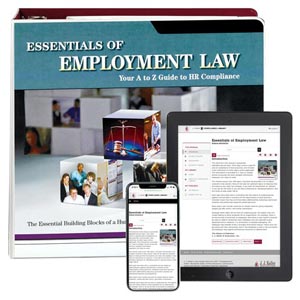Is it legal to record conversations in the workplace?
Updated April 18, 2025
In matters regarding privacy in the workplace, what may feel like an invasion of privacy to an employee is not one. Employees may feel that the conversations they have with other employees or with customers may not be legally recorded, but this simply isn’t the case.
While audio recording is generally allowed, the specifics surrounding recording conversations in the workplace vary by state. Most states are one-party consent states, which means that only one party to the conversation needs to give consent to a recording. The person doing the recording can be the one giving consent, assuming that person is a party to the conversation. In one-party states, individuals could potentially record a conversation in the workplace without informing the other parties to the conversation, meaning that an employer or even an employee could legally make a secret recording.
Most states are one-party states. However, California, Florida, Illinois, Maryland, Massachusetts, Michigan, Montana, New Hampshire, Pennsylvania, and Washington are two-party (also called all-party) consent states. In those states, all parties to the recording must give consent for it to be legal. Connecticut and Nevada are unusual in that these two states require two-party consent for telephone conversations, while for in-person conversations they follow one-party consent rules.
Telephone recordings
Many employers record customer service calls between employees and customers for quality purposes. When employers have a business reason for recording a call, doing so is generally acceptable, but employees in a one-party state must be notified that the call may be recorded. In a two-party state, customers must also be notified. An employee’s consent to be recorded can be made a condition of employment.
What happens if an employer wants to record a call, and the business is in a one-party state, but the call is placed to someone in a two-party state? The California Supreme Court grappled with this issue after a call was recorded between a business in Georgia, which is a one-party state, and an individual in California, which is a two-party state. The individual in California was not told the conversation was being recorded. The court held that the two-party statute prevails, because the intent was to protect the privacy of California residents.
Employers still make the rules
Plenty of actions are legal without requiring the employer to allow them in the workplace. For instance, individuals have the right to smoke, but employers don't have to allow them to smoke on company property. Likewise, while employees might have the right to make an audio recording in the workplace, employers do not have to allow recordings, even in one-party consent states.
As such, a company policy could prohibit audio recordings in the workplace. Many organizations also prohibit video recordings or photographs, especially since employees have these capabilities on their cell phones.
It’s important to note, though, that while an employee might be violating their employer's policy by making a recording in the workplace (and could be disciplined up to and including termination), a recording that was legally made could still be admissible in court.
To clarify, it’s not that the employee could sue after being disciplined for making a recording, but the recording could serve as evidence if, for example, it provided proof of some form of illegal discrimination.
Key to remember: While employers do not have to allow recordings in the workplace, both employees and employers can legally make audio recordings, though with varying degrees of consent required depending on state law. In some states, only one party needs to consent to the recording, while in others, all parties involved must give their consent.
This article was written by Katie Loehrke, PHR, editor, J. J. Keller & Associates
 J. J. Keller's Essentials of Employment Law Manual makes employment laws accessible and easy to find, plus provides practical guidance on how to apply employment laws in your workplace.
J. J. Keller's Essentials of Employment Law Manual makes employment laws accessible and easy to find, plus provides practical guidance on how to apply employment laws in your workplace.


